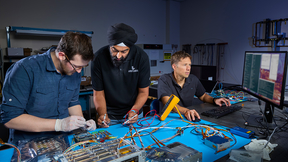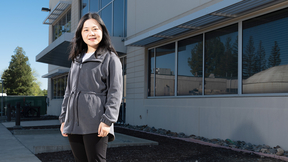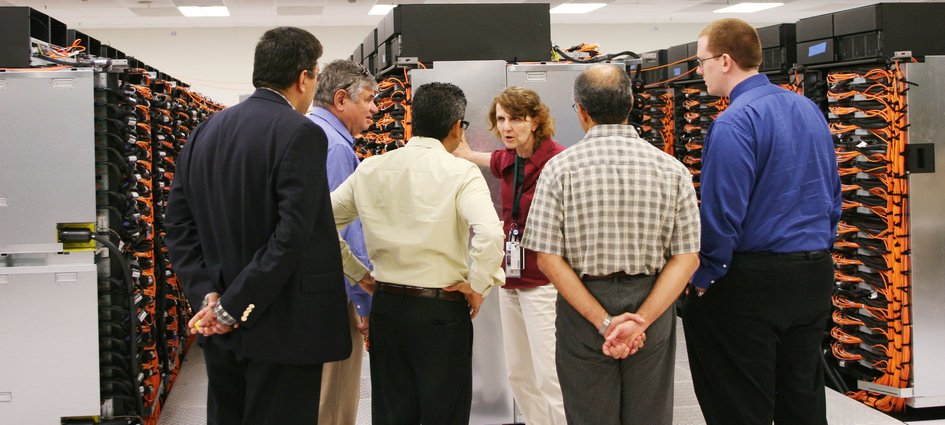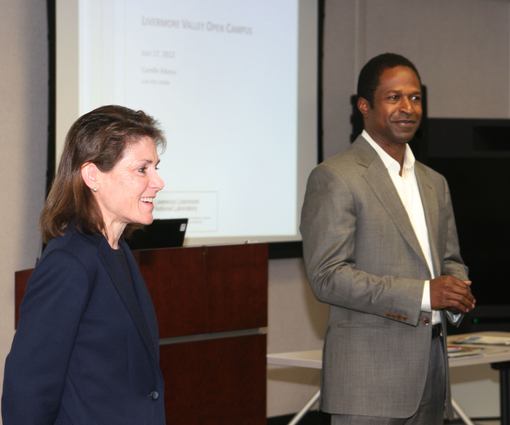Lab hosts workshop with research universities to address energy challenges
"This exchange of ideas is a great opportunity to build on existing collaborations in system modeling that address energy challenges," Monya Lane, associate director for Engineering, said in remarks opening the two-day "Energy Systems Technical Exchange Workshop," co-hosted by the Engineering and Computation directorates.
"Partnerships are important to us for the expertise you bring," Lane said, noting that the workshop was not only about addressing energy problems, but also about "educating our future workforce."
Jeff Stewart, Engineering's Energy Business Development lead, organized the meeting and introduced the discussion sessions. Institutions participating included: Arizona State University; Princeton; the University of California (UC) Berkeley; and UC Los Angeles. Also attending were representatives from Southern California Edison and PG&E. The utility representatives attended to provide feedback on how the research partnership could best help the electric energy sector. Stewart said the workshop -- the first of its kind -- was a way for participants to learn about the expertise and capabilities each institution can bring to bear on such challenges as: energy systems analysis; building a smart energy grid; renewable energy sources; and technical subsets of these problems. Participants were given a tour of the TSF and provided with overviews of the High Performance Computing Innovation Center and the broader open campus project.
Rob Sharpe and Alan Lamont of Engineering discussed LLNL's computational engineering capabilities, and Rob Neely summarized Computation Directorate research activities and LLNL high performance computing (HPC) systems. The emphasis was on applying HPC capabilities and expertise in systems modeling, analysis and simulating complex systems to overcome hurdles to building a 21st century power grid.
Liang Min, Engineering's lead for Smart Grid R&D, presented current LLNL research efforts in this area that received strong endorsement from the industry observers. These efforts combined the unique capabilities of our university partners and the in-house capabilities of the Engineering and Computation's Directorates to develop, test and validate first-of-a-kind systems that can help realize the energy future policymakers envision.
"It is urgent we begin to address the enormous challenges of building a 21st century power system," Stewart said. "We're hoping the collective expertise the workshop represented will translate into collaborative projects that draw on the individual strengths of participants."
The group agreed to strengthen the collaborations by seeking more joint research opportunities in the area of Computational Energy Systems Modeling, continuing student involvement with LLNL researchers. Plans for an expanded workshop, which will include more industry and government agencies, are already underway for this fall.
Contact
Donald B Johnston[email protected]
925-423-4902
Tags
HPC, Simulation, and Data ScienceComputing
Physical and Life Sciences
HPC Innovation Center
Energy
Featured Articles









